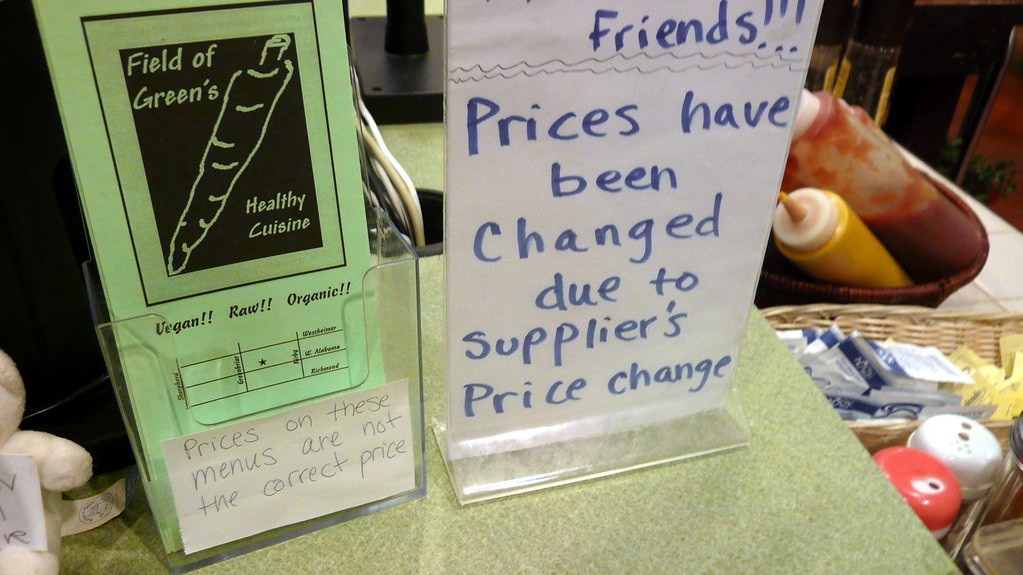Economics and the environment: Rise of veganism
Simran Massey holds a Bachelor’s in Economics (Honours) from St. Stephen’s College, Delhi (2015-2018) and a Master’s in Public Policy (MPP 2018-2020) from St. Xavier’s College, Bombay. She is currently pursuing MSc. International Social and Public Policy (Development) at the London School of Economics (2021-2022) and interning at the House of Commons, UK Parliament.
“There is no fundamental difference between man and animals in their ability to feel pleasure and pain, happiness, and misery”.
-Charles Darwin
From prominent public figures around the world turning to veganism, like Bill Gates and Jay-Z, plant-based diets have gone mainstream and are not met with hostility anymore. Due to the realisation of countless benefits, such as the promotion of animal welfare, positive environmental impact, increased sustainability and better health, people have started shifting towards veganism and this trend is expected to grow exponentially.
According to Annemans and Schepars (2018), within a broader framework, a plant-based economic approach could save billions of dollars for countries and people could be healthy as well as thrive without eating animal products! Contrary to popular belief, plant-based diets can contain just as much or more iron than diets containing meat [1].
Ethical consequences of being vegan
Food is part of our cultural identity and, at the most basic level, essential to our survival. Given our level of sophistication and control over our world, eating living creatures has become a ‘choice’ rather than a ‘necessity’. Thomas Edison aptly said, “Non-violence leads to the highest ethics, which is the goal of all evolution. Until we stop harming all other living beings, we are still savages”.
Just like homo sapiens, animals are sentient beings with their own needs, desires, and interests. Self-preservation is important to animals too since they are conscious and aware of the world around them and can experience a wide range of sensations and emotions. Thus, people need to realise how their lives are also valuable and animals don’t simply exist as resources or tools for human use.
According to Foucault (1997), ethics can be understood as the actions of the self on the self with the aim of making, developing, or transforming the self to reach a particular state of being [2]. Many vegans claim that the practice of veganism helped to relinquish their disordered eating habits, temper the emotional and psychological turmoil that surrounded their eating practices and mitigate antagonism toward their own bodies. From a Foucauldian perspective, this proliferation of discourse indicates that food and eating are significant to our identities.
The practice of veganism, thus, could be a Foucauldian ethical practice of freedom [3]. Several people who tried veganism experienced beneficial effects as they either found it to be a tool for strengthening their connection with themselves or fostering self-love. Thus, a plant-based diet has been observed to serve as a coping mechanism with people having more control over their food, while experiencing freedom and creative expression.
Environmentally sustainable: Push for a green economy
Norman Borlaug, the father of Green Revolution, aptly said- “You can’t build peace on an empty stomach”. While the animal rights movement has been, and will always remain, a crucial foundation, the growing trend towards veganism has been a manifestation of increased environmental awareness.
The three pertinent barriers to cross, while saving millions from mass starvation, are- psychological, technological and economic. While the health and ethical benefits are undeniable, switching to a plant-based diet is healthy for the environment as well, since plant-based meat alternatives produce substantially lower emissions than actual meat.
According to a paper by Joseph Poore of Oxford University, people who do not necessarily identify as being ethically vegan are also starting to incorporate a plant-based diet into their lives due to environmental concerns [4]. The research highlighted that veganism would cut carbon emissions from food production in half, thus, freeing up land for other uses. Therefore, with a quarter of global emissions coming from the food industry, avoiding meat and dairy constitutes one of the most effective ways to reduce one’s environmental impact.
The vegan economy: Opportunity costs and benefits
The good news is that there are not only environmental and humanitarian benefits to a plant-based agricultural system but immense economic benefits as well. Recent research shows how the additional food that would be produced as a result of a shift to a vegan diet in the US alone could feed 350 million additional people [5].
On the supply side, consumers now have greater access to vegan options than ever before due to financial globalisation. Additionally, a significant shift in dietary preferences towards plant-based consumption would result in lower commodity prices. Thus, making plant-based alternatives more widely available is a tactic behavioural nudge in the right direction.
Vegan wars: The dark side of veganism?
Vegan food fanatics often do not understand what impact their dietary preferences have on those living in more impoverished regions. Not only does it severely impact local economies, but it also influences the fragile food balance. In countries like India, a political and economic debate is waging as to what constitutes a proper diet, in particular when it concerns young children.
Although the World Health Organisation has included animal products as a crucial element of what we eat, there are political interests at play in deterring those very same products from entering the market. Veganism is as much about politics and profit as it is about ethics, thus, one needs to be cautious while weighing alternatives.
Conclusion
“Nothing will benefit health or increase chances of survival on earth as the evolution to a vegetarian diet.”
– Albert Einstein
In a world reeling from a global pandemic, never has a treatise on veganism- from our foremost scientist Einstein—been more relevant or necessary. India could lead the ‘vegan economy’ against future pandemics. The global market already has a huge demand for Indian organic supplements and medicines.
With cities mobilising the transition to a circular economy, for food both within and beyond their borders, now is the time to switch to veganism. Such a switch offers many pragmatic reasons for governments to implement programmes that incentivize the agriculture industry to make necessary changes.
As we are grappling with COVID-19, hunger and food insecurity is getting worse. Research helps confirm that, on multiple levels, plant-based economies would improve the overall health and wellness of people around the world by reducing hunger in developing countries and reducing chronic diseases in the West. Thus, our future food systems need to provide affordable and healthy diets for all, while preserving natural resources and tackling climate change.
References
[1] Annemans L. & Schepers J. (2018). The potential health and economic effects of plant-based food patterns in Belgium and the United Kingdom. Nutrition.
[2] Foucault, M. (1997). The Ethic of the Concern for the Self as a Practice of Freedom. In Ethics: Subjectivity and Truth; Rabinow, P., Ed.; The New Press: New York, NY, USA.
[3] Foucault, M. (1997). Sex, Power, and the Politics of Identity.In Ethics : Subjectivity and Truth; Rabinow, P., Ed.; The New Press: New York, NY, USA.
[4] Poore, J. & Nemecek, T. (2018). Reducing food’s environmental impacts through producers and consumers. Science 360 (6392).
[5] Shepon, A., Eshel, G., Noor, E. & Milo, R. (2018). The opportunity cost of animal-based diets exceeds all food losses. Proceedings of the National Academy of Sciences.
Image Credit: Flickr








